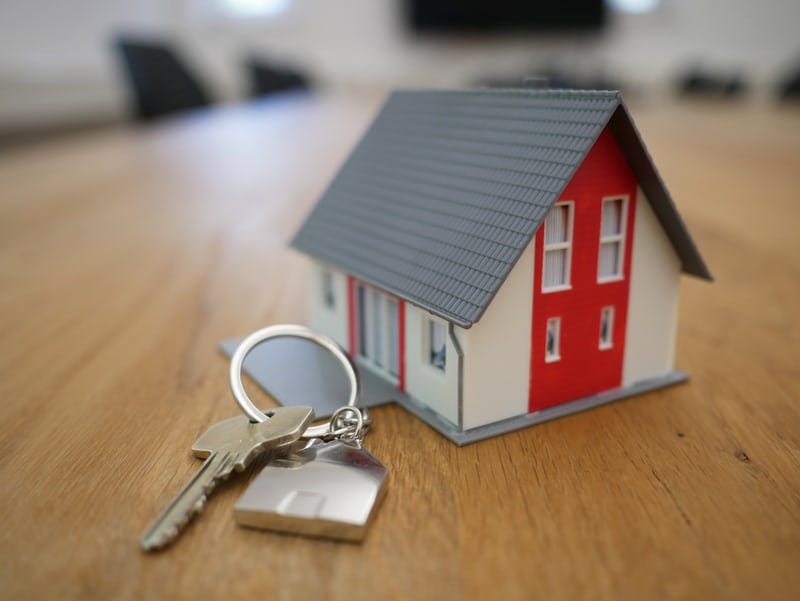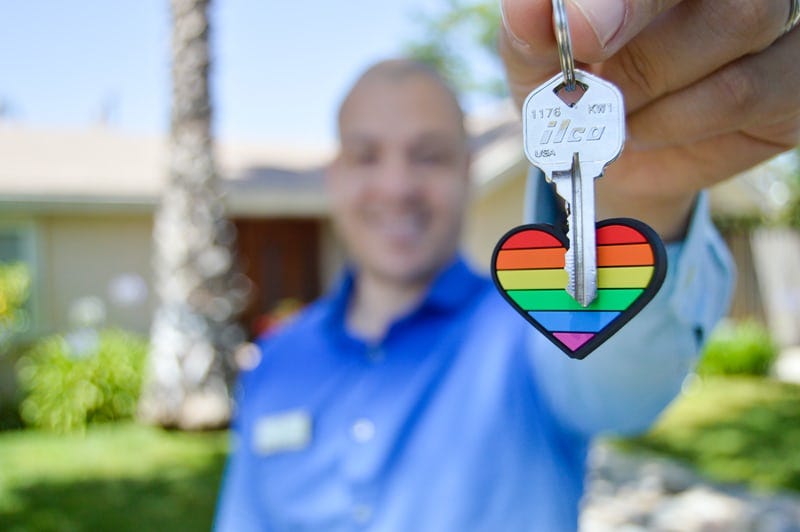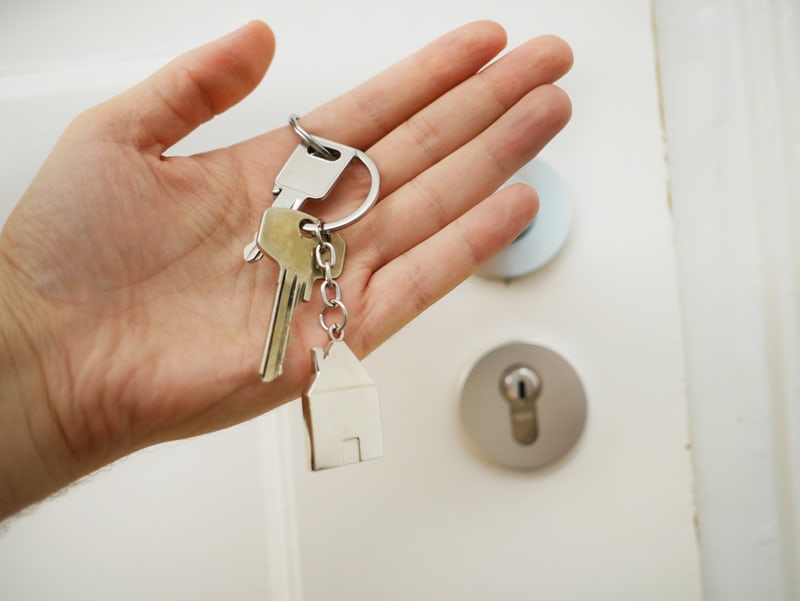One-hit wonder careers have mostly been concentrated within the sports, entertainment, fashion and real estate industries since they became popular and a part everyone’s world in some shape or form.
There is a fake promise and drive that leads overly optimistic professionals and high school graduates into these arenas with little to no educational or financial backing.
To compensate for the extreme risk to reward pay off, earnings can be extraordinary yet only a sliver of the clan who can last that long receive it. Those who somehow keep it together and not let fame get over the heads in part thank their exceptional luck, timing and usually a helping hand or two that have propelled them along the way.
I’ve seen my fair share of colleagues that have ditched the books and degrees to sell houses instead. After 2 years, I cannot say it has paid off for them since they’re back, in the back of the classroom this time catching up on their massive loans with a severe lack of faith. Yet I commend them for having the courage to take calculated risks early on. Better earlier than later!
With the assumption that one can become a renowned real estate broker and a star on Selling Sunset or Million Dollar Listing after a couple sales and just a license to their name is unrealistic as majority of brokers can barely survive even full-time 30 years later.
Currently there are more real estate agents in the U.S. than homes for sale! That says something about their lack of preparation, timing, and over reliance on making it big right away. Everyone wishes they could jump to the top of the corporate latter if they could but many aren’t taking the chance anymore.
According to MillionAcres.com, “At the end of January 2021, there were 1.04 million homes on the market in the U.S (down 26% from 2019’s inventory), the fewest homes on the market in nearly 40 years. Meanwhile, the National Association of Realtors (NAR) has 1.45 million members, 4.8% more than the year prior. To put it in perspective, that’s nearly 40% more agents hunting for deals than there are houses on the market.”
The flexibility and convenience of getting a real estate license, not going to college, and living on your own terms is too appealing not to try yet not the safest most reliable route. If we all could, majority of us would want to save a quarter of a million dollars on school yet the tradeoff of having no intellectual property doesn’t cut it for many risk averse students, including myself. I don’t mind being late to the game and finding success later on with a degree backed behind me. Life isn’t a race anyway. It’s a marathon.
Even though the average pay for a real estate agent is shy of $50k, that is barely cutting the threshold of an annual graduate’s first year salary of $60k. Neither are guaranteed income but a degree is a safety net, something no one can take away from you. On the other hand, deals you’ve made as an agent can be snagged and publicized by the brokerage instead. It’s hard to prove your worth without experience and education.

Open the Front Door
Most of the time sellers and buyers feel forced to work with an agent due to opportunity cost.
Time = Money and when you don’t want to put in the dirty behind the scenes work of open houses, negotiation, research, paperwork, etc. we are pulled in by an agent at every corner.
If you had the choice to go through the home buying or selling process yourself, would you do it?
If so, do you regret it?
According to National Statistics, in the U.S., only 8–10% of people sold or purchased a property without a real estate agent. This is considered going through FSBO, “for sale by owner”. This small percentage makes sense since majority of us aren’t experienced in law, real estate and have access to a private listing database at the same time.
More laziness on the client’s end and a low inventory, high priced market have all pushed the attractiveness of real estate further for agents overheating in itself just like with properties.
Here are the additional downsides to FSBO if you are really picky about agents:
-Not having the expertise or effort to negotiate a decent price point
-Not having enough free time to dedicate to finding a buyer/seller + coordinate open houses, make the space unlivable and try out new neighborhoods with research done beforehand
-Buyers want to view more listings outside of the public domain of Zillow, Redfin, etc.
-Brokerages have large networks, private, non-public listings and certain contacts in different areas
-Brokers help weed out unfiltered non-credit worthy buyers to save you time on open houses
-You ignore your home’s flaws, cannot set a true realistic price point if you are all on your own and social media marketing or word of mouth won’t always cut it
-Various legal paperwork involved in home sale and needs to be completed with attorney to confirm no liabilities
-Agents offer a different perspective, outside POV although flawed and bias as well only considering the “best parts” of the property to sell it
-Brokers can keep you on track, consistent with sending out recurring new listenings and always on top of the market as it is their job
From this list, brokers don’t seem that bad after all. They make the most stressful and convoluted process of our lives easier.
Only catch. It’s their job and it comes with a hefty price.

Home Run
In early 2021, the real estate market went through a cooling off period as low inventory, sky-high prices, and an abundance of agents were pricing out buyers who simply couldn’t afford anything at that point.
Luckily, or not, in the last month sales of new homes jumped as supply finally increased and prices held steady. The Census Bureau stated purchases of new, single-family houses increased at an annual rate of 740,000 in August, well above the 714,000 economists surveyed by Bloomberg anticipated.
The total was 1.5% higher than the revised July figure of 729,000, but 24.3% fewer than a year ago. This bumped up the median sales price to $390k, with ~5–7% going to the agent.
At the end of the day, $20k isn’t much for the brokerage house or agent themselves still but plenty to give up from the buyer’s side.
New home buyers are priced out of the markets due to astronomical high prices and buyers feel they need to jump on a decision in fear of loosing an attractive deal. Due to this temptation, agents tend to cut corners and lead most buyers at this time to overpay for houses along with massive regrets.
It’s astounding that 80%+ of pandemic homebuyers REGRET their home purchase!
I’m convinced this is due to a few factors that could’ve all been avoided if it weren’t for the WFH craze and obsession with the seemingly risky real estate path in 2020.
Additional factors led to this massive surge in home buying such as:
-Low mortgage rates = incentive-cheap borrowing lures buyers to take advantage of a fake “sale”
-Frivolous buyers didn’t think about the future nor realize WFH and city life will be back eventually sticking with the pool and basement in the suburbs instead to cure short term discomfort in their Manhattan studio for a few extra months
-The average homeowner stays in their property for no more than 5 years. In order to get a true return on a property, it is advised to stay in one for 10 years, similarly with owning a vehicle unless it becomes a safety hazard and at that point it is recommended to trade it in earlier.
-Not realizing how much their 15, 30 year mortgage with only 10% or less will really cost them each month on top of possible debt repayments and living expenses, HOA, renovations, etc. that eat into budget
-Solely focused on house not irreplaceable factors from location to neighbors
Upon adulthood, real estate is the most common and expensive purchase one will make in their lives. Yet these days many grads are tapping into the bank of mom and dad.

To save you some headache and a downpayment down the line, let’s identify the faulty mistakes that are hurting buyers:
Uncertain Location
That paint can be removed and staircase can be fixed, but never the location or barking dog next door. People fall in love with a property’s kitchen, backyard, front yard, and strangely furniture but negate location and neighbors. From a noisy airport a few miles away to a bustling highway, it’s rare to be in isolation these days which means you need to consider what’s outside of the walls that cannot be fixed since you’re paying for all of it! Health is wealth. Usually the downsides are hidden in the price. It is less expensive than the rest of the properties on the block and isn’t selling for a reason.
No Step Inside
In the midst of the pandemic, we were told to take strict precautions in public and needed to keep our distance from people outside of our household.
Stepping into someone else’s home was a covid breeding ground yet the real estate market persisted and people fled. It was a difficult process to navigate yet thanks to savvy addictive real estate platforms and luxurious exaggerated YouTube tours, this led gullible buyers to be sold on a 360 degree view of a property they viewed from the comfort of their couch.
As with most things in life, you never know what it’s truly like until you experience it. Everything hits different when you are in person and buying a home online should be illegal since its so dangerous.
Don’t believe what you see online until you go see it yourself!
Professional photography, 3-D floor plans and virtual walk-throughs are misleading and supposed to look better than in person!! From clothing to concerts, the device doesn’t do justice. We can easily save thousands and in this case millions just by ditching the device. If you don’t have time to walk in person to your future sanctuary, you should never buy it unless your sole purpose is to renovate the whole thing from scratch and rent it out.
Peacefully Difficult
The properties that are high maintenance and require constant repairs tend to be the ones we use the less. Just take a stroll around beachfront properties and all you’ll see are construction trucks always fixing something! These high maintenance, 2 months out of the year livable properties include vacation and weekend homes that we dream about yet end up straining our budget and time to actually enjoy them.
When I think about a vacation property, I imagine it being readily available for me to escape to anytime which sadly is rare unless you have a housekeeper on speed rail 24/7 and a reliable neighbor able to pick up the pieces every time light wind or a rainstorm hits.
One of life’s mysteries.
Why do storms always have to hit the most beautiful areas?
If you want your getaway to actually be enjoyable and wind-proof, strive for a smaller and higher property not susceptible to flooding, break-ins and rodents from the ground.
Your primary residence will have to endure the costs of upkeep and ongoing renovations since it must be livable for everyday life. That’s part of living there. On the other hand, to ease up the burden of a vacation property and actually make it feel like an oasis, stick with following, less = more, a reliable safe location and preferably not a standalone property so a management board can keep it in tact when you are gone and you’ll be gone more than you think.

To the contrary, let’s identify what seller’s don’t focus enough on:
It’s In The Details
Simple small tweaks such as sprucing up the home’s decor to hiding your pet’s toys can be the game changer in securing a sale.
First impressions matter and by taking the time to go through the preliminary home inspection and little details matter.
Do the work now for a piece of mind later. Selling a home isn’t about selling it. It costs money and time to make it on the market. It’s part of the process to make it presentable and livable. No matter how hard, take out the your own attachment and personal bias to your childhood home.
Keep Tabs
To save on capital gains tax, the tax on top of the gains you make from selling-purchasing price, make sure to take inventory of all the repairs you made to your property over the years to reduce your capital gains burden.
The longer you’ve held a home for, the more taxes you have to pay since it most likely went up by a lot, just 10% in the last year alone.
Same as you keep track of your spending, take stock of all the improvements you made to the home to justify the selling price and what you really earn and owe to the IRS.
Mark Your Word
Most agents will want you focus on the replaceable or non-important things such as the appliances or even furniture sometimes! They think we are stupid sometimes. Agents will first introduce you to the house by pointing out the architecture, history, and only charming things about it then lead to the truth, if you ask for it.
You should step in and give yourself a solo tour even if you are buying it with someone else. It’s your job to focus on what agents aren’t talking about and this begins with a degree of trust.
In order to become a reputable, reliable seller and secure the transaction, if you’re too aggressive and smudge the facts, people will see through that and know you are hiding something.
The price is a giveaway. It’s at that price point for a reason.
Whether you are in the process of securing your real estate license, cozy in your childhood home and refuse to sell it or looking for a major upgrade, realize what’s in your control and what it means to be a part of a transaction.
My rule of thumb isn’t to be friends with a salesperson. Their job is to sell you something not make you happy or hang out outside of 9–5. In order to not get ripped off, keep it professional. Although we hand over our power during the home-buying/selling process, make sure to keep tabs with what’s going on.
Confirm your agent is working in your interest because you are the one who will live there not them.

